UPDATE: a more recent version of the Global Tax 50 is available.

This is the first year International Tax Review has put together a top 50 biggest influences in tax. It celebrates the individuals that are determined to shape the industry's big decisions.
Tax and tax law is in a constant state of change. Taxpayers have found their work being placed higher on board agendas while tax officials and governments are using tax as a tool to slash growing budget deficits.
And with global multinational operating in every country of the world, a tax change in one location will have implications the other side of the world. International tax is truly borderless and the decisions of a few will shape the future for many more.
These changes are influenced by many individuals but politicians and senior officials are often seen as the figure heads for change. This is the case, but just as important are the people that are on a mission to challenge the rules put upon them. These are academics, in-house directors, pressure group, activists all not content to sit back and let the future of tax be dictated without them.
The 50 people and organisations chosen as the biggest influences on tax today are personal choices. We used no criteria to make them, apart from importance and impact on the practice of tax. To make the task easier, we excluded private practitioners because we felt it would be too difficult to assess why one lawyer, accountant or adviser was more important than another.
So here are the 50 in alphabetical order. It is up to you to agree or disagree. Please let us know if we have got the list right or wrong. We will repeat the list annually, so your opinion might influence us for next time.
| |
Graham AaronsonQC |

|
Graham Aaronson QC is chairing a study group that will look at the feasibility of introducing a general anti-avoidance rule in the UK.
International Tax Review: What do you consider to be your biggest achievement or influence on taxation?
Graham Aaronson: Firstly, the Hoechst/Metalgesellschaft case in the ECJ. I initiated the Hoechst case, settling the writ in 1995, and took it through to the ECJ, where, by some bizarre clerical mistake my name was missed from the record! The ramifications of Hoechst are still being felt in 2011, with the FII case going to the Supreme Court next February, and other EU-based GLO challenges still waiting to begin. The recent M&S decision of the Court of Appeal is yet another offshoot from Hoechst.
Secondly, getting the courts to apply purposive interpretation to tax statutes. I initiated this with the Chevron case in 1995, reinforced it in the Prudential v Bibby case in 2000, and cemented it in the House of Lords in BMBF v Mawson in 2000. It seems odd now to think that pre-Chevron – and indeed in Chevron at the Special Commissioners – the courts were continuing to apply the literal language.
ITR: What do you consider to be the most satisfying dispute you have been involved in, or otherwise influenced?
GA: One is BMBF v Mawson, where I persuaded the House of Lords to issue a single judgement explaining simply how tax statutes should be interpreted and applied, particularly in cases where the Revenue regarded the transaction as tax avoidance. It was, and still is, a pivotal decision, and one which I never had any doubt that we would win in the end.
Another satisfying dispute was the extremely long and drawn out transfer pricing dispute between AstraZeneca and HMRC, which was settled last year shortly before the hearing scheduled for 14 weeks.
The settlement was regarded as very beneficial both to AstraZeneca and to HMRC – an achievement in itself. But what was particularly satisfying and interesting was the process of selecting and interviewing the five expert witnesses – all from Harvard, MIT and other universities in Boston – and likewise for witness evidence from more than a dozen people involved in the development of various drugs. Work on the case, with a huge team from Freshfields, Deloitte and AstraZeneca, took over four years, and there can be absolutely no doubt that the excellent settlement was the product of all that work.
I doubt whether there has ever been any other tax case involving even a small proportion of the work which the AstraZeneca dispute entailed; and, equally important, no other case I have worked on has involved such astonishingly close and friendly teamwork.
ITR: What were your main undertakings in the role of chairman of the Tax Law Review Committee?
GA: As chairman of the TLRC, my main achievement was to initiate the discussion on the form of our tax legislation, and recommend that it should be completely rewritten. Whether I am now happy to have initiated the rewrite programme is something I still wonder about! Another thing I managed to do was to get a unanimous report on the thorniest of tax topics – tax avoidance. Considering that the TLRC then included Lord Templeman, Lord Nolan and representatives of the tax and accounting professions, that was no easy task.
| |
Krister AnderssonBusinessEurope |

|
Krister Andersson is the head of the tax policy department at BusinessEurope, which represents 20 million companies in 35 countries. He is also the vice chairman with responsibility for taxation in the Business and Industry Advisory Committee (BIAC) to the OECD. Andersson is active in debating double taxation in Europe and beyond and was involved in the EU Brazil Summit, which aims to streamline business and investment between the two economies. Andersson's mantra is splitting the tax cake, ensuring business only pays tax once and he says that transfer pricing is the biggest problem for business in this area. As a business representative he has the influence and the ears of some of the most powerful economic organisations in the world, not least the OECD and is position to influence tax and transfer pricing policy, in-line with taxpayers' needs.
| |
Joseph AndrusOECD |

|
Joseph Andrus is the new head of the OECD's transfer pricing unit. Responsible for steering the Working Party No 6 and other transfer pricing projects for the OECD, Andrus's influence in the next couple of years will be felt across the world as taxpayers and revenue agencies attempt to adapt towards new guidance issued by the OECD.
Joseph Andrus has negotiated high profile transfer pricing cases for some of the biggest companies in the world but he was no match for French immigration, arriving one week late to his post.
Andrus was scheduled to begin his work at the OECD on October 3 but, because of issues with his visa, he was delayed by a week. In spite of his late arrival, he has dived straight into the demands of two projects; intangibles and administrative aspects. He is also very concerned with the issue of transfer pricing in developing countries. With an initial contract of two years, Andrus has his work cut out.
The intangibles project is a big task and, while Andrus is only in his first week, he has the benefit of having been involved with the project from the beginning. He has been a consultant at the OECD, in the field of transfer pricing, for a number of years, having observed the previous project on the transfer pricing aspects of business restructurings.
"Previously, I helped write internal papers and gave my views on various issues. I'm now responsible for moving transfer pricing forwards, making sure Working Party No 6 (WP6) has lots to do and focuses on the right things. It's a much bigger job."
His final job
Andrus joins the OECD from the Boston office of PwC, where he specialised in the taxation of international transactions and investments and in the resolution of international tax disputes. He also has significant experience with competent authority, APA, IRS appeals and audit matters.
Andrus has resolved competent authority and APA matters in almost every industry and he has experience in APA negotiation involving the transfer of intangible property, global dealing in financial instruments, the sale of tangible products, R&D cost sharing agreements, and the provision of intercompany services. He has represented clients in bilateral dealings with the UK, Japan, France, Germany, Mexico, Korea and other countries. "This is the last job I will do. I don't expect to go back to advisory work."
When Caroline Silberztein, Andrus's predecessor, left the OECD, she told International Tax Review that the intangibles project would not be negatively affected by her departure. Tax practitioners, off the record, have said, however, that they cannot see how this would be true. The intangibles project deadline is already quite ambitious and, with Silberztein's departure, it is bound to be delayed.
"I think the intention is to meet the deadlines," says Andrus. "I think that's one of the reasons the organisation thought I would be good [for the job] because I have been very involved with the intangibles project. I know where they're up to and I have been in the meetings so I'm optimistic that we will meet the deadlines."
The next meeting for WP6 will be November 6 to 9 and the Working Party aims to address the comments on the scope of the project, sent in by business.
"I think we need to do something with those issues. There are a number of very good suggestions and we will address the comments in the transfer pricing guidelines that already exist on safe harbours – those are a bit negative in tone – and the WP6 has on its agenda some reconsideration of what is referenced and how it [translates] in practice. There are times when safe harbours are a good idea and times when maybe they are not."
Enough on his plate
Andrus says he doesn't have his own agenda at the OECD, the tasks on his plate are already enough for him to tackle and, while he says he would be happy to stay on longer than the agreed two years, it could not be much longer because he is approaching retirement.
"The developing countries are also a high-profile issue and hopefully we can help with that by interacting with other organisations, work on our out-reach programme and work on our meetings as part of the international treaty and transfer pricing global forum, beginning next spring. I will assist in as much of that as I can."
On his aims throughout his two-year tenure, Andrus says he wants to help build up the OECD's transfer pricing staff that will carry on the transfer pricing agenda after he leaves.
"I think there's some need to improve on how we deliver out-reach and support to governments and to get more people publically involved. I'm excited about staff building and getting the right people in place."
If the WP6 doesn't deliver on time, Andrus's aims of building up the transfer pricing unit could be crucial to the development of the intangibles project. When the OECD are still looking to replace Mary Bennett, the previous head of the Tax Treaty, Transfer Pricing & Financial Transactions Division in the Centre for Tax Policy and Administration, let's hope Andrus's late arrival isn't an omen for things to come.
| |
Jun AzumiJapan finance minister |

|
Japan's new finance minister, Jun Azumi, does not have an easy job. After being thrust into this position back in September he has hit the ground running. His first order of business was announcing his plans to cut the corporate tax rate amid fears that the rising value of the yen will encourage struggling business to relocate overseas. Japan's 41% is one of the highest in the world. This would be a popular move with business but would do little to generate extra revenue for a country still recovering from March's earthquake and tsunami.
Over the past two years, the value of the yen has increased by nearly 20% against the dollar, and manufacturers are struggling to compete on world markets.
Azumi said that he wanted to reduce the rate of corporation tax to ensure that businesses stayed in Japan.
"Amid global competition, Japan's corporate tax is very high," said Azumi, who represents the left-leading Democratic Party.
The government initially announced its intention to cut corporate taxes by five percentage points last December. However, these plans were put on hold in March after damage from the earthquake generated new spending commitments, and led to a further deterioration in the government's financial position.
Azumi has said that he may need to raise the rate of corporate tax in the immediate term to finance further reconstruction, before reducing it below its current rate in the future.
| |
Philip BakerQC |

|
Philip Baker is a barrister and QC practising from Grays Inn Tax Chambers in London. He specialises in international tax issues with an emphasis on double tax conventions and EU law and taxation with a particular emphasis on European Convention on Human Rights and taxation.
Achievements in recent months include:
Acting as expert witness in Vodafone case in Mumbai and Delhi;
Litigation on EU law and on tax treaty claims;
Representing the Mauritius government in appeals before the Privy Council;
Advising on international tax disputes in Australia, India, Africa, the US and Romania;
Advising on international tax issues for multinationals and for individuals; and
Pro bono work for Low Income Tax Reform Group
"I hope international taxation is heading towards more clarity and less conflict, but I fear that we are heading for a period of competing claims to tax by states, and less of a leadership role by the OECD, without the UN yet taking on that role," Baker said.
| |
Francois BaroinFinance minister, France |

|
Previously a government spokesman and budget minister, the French Minister of Finance had big shoes to fill when he replaced Christine Lagarde following her appointment as managing director of the International Monetary Fund (IMF) in July, but this has not held him back.
Along with German Finance Minister Wolfgang Schauble, Baroin has led the field in the drive for a financial transactions tax (FTT), calling for the EU to "lead the global mobilisation on this issue".
"Nobody can say that a tax on financial transactions is not technically feasible," added Baroin, as the G20 assesses the technical coherence of such a move.
He has also implemented significant tax reform measures in France's 2012 budget aimed at reducing the nation's deficit. Following comments from French Prime Minsiter, Francois Fillon, that "our country cannot live beyond its means forever; we have passed the threshold of tolerance on debt," Baroin started looking at how tax reform could aid this process.
The extent of his efforts can be seen when you consider the fact that of the recent austerity budget of €11 billion (€15 billion), the tax measures amount to €10 billion. The main changes include the repeal of many tax breaks, and an extension of the participation exemption to cover capital gains on participation shares. It was previously applicable only to dividends. This measure constitutes a compromise in that the participation exemption regime is heavily criticised in France because of its supposed cost, and highlights Baroin's pragmatism.
In line with efforts to increase harmonisation of the corporate tax systems around Europe from French President Nicolas Sarkozy and German Chancellor Angela Merkel, Baroin has also promoted Franco-German harmonisation by, for instance, adopting the German rules on loss carry forward.
| |
John ColvinChief judge, US Tax Court |

|
John Colvin is in his second successive term as Chief Judge of the US Tax Court. Appointed as a judge in 1988 by Ronald Reagan, he was re-elected by President Bush in 2004 and made Chief Judge in 2006.
In his role, he is responsible for comprehensively reviewing every decision made in the Tax Court. This is not a practice used by all court systems, but the purpose of this review process, Colvin told International Tax Review, is to achieve consistency.
He also oversaw the decision from judges to apportion their time between the different courts as opposed to each court developing separately under different tax court judges. But the lateral thinking applied by Colvin to his Chief Judge role does not stop there. Colvin has the right, in exceptional circumstances, to order a court conference whereby a decision is reviewed by all the sitting judges. This, he explained, is of particular use when a decision would overturn an existing IRS regulation, or when the court elects to not follow a previous tax court opinion.
Before his appointment to the court, Colvin had served as chief counsel to the Senate Finance Committee, so he has gained experience of handling matters of taxation from a number of angles.
Colvin maintains a good relationship with lawyers and advises them to concentrate on stipulations (facts agreed by both parties) before a trial starts so as to make the trial process as simple as possible.
Other courts could learn a lot about promoting early resolution of cases by seeing how Colvin manages his resources. As the debate surrounding reform of the US tax code rages on, Colvin is sure to be kept busy, particularly given that filings topped 90,000 in 2008, 2009 and 2010.
| |
Douglas BatesChairman, Board of Directors, Tax Council Policy Institute, US |

|
Compared to other representative organisations, the Tax Council Policy Institute (TCPI) is only a youngster. Founded in 1997, its work is aimed at explaining the impact of tax policies on the US economy and business and it has already had considerable success. It is made up of 'senior level tax professionals who work together to promote sound federal tax policies and a better understanding of our [the US] federal tax system'. The TCPI's influence is seen annually in the tax symposium it convenes in Washington, DC. The conference hosts speakers from government, corporations and private practice in high-level discussions that highlight US and global tax issues.
The Institute's president now is Douglas Bates, vice president, federal relations, Northwestern Mutual, a life insurance company headquartered in Milwaukee. Though he is not a tax specialist, he has been around tax politics and policy for a long time.
"The Annual TCPI Symposium is a unique programme," says Bates. "It is entirely financed by TCPI members, the topics and content are developed by the tax directors themselves, they provide the analysis and populate the panels, and together they seek a consensus and conclusion. My role is simply to lead the process with the other members of the board of directors. The TCPI programs have built a reputation as a balanced, informed forum of tax policy ideas. That credibility means policymakers listen."
Other well-known names in global commerce have their tax directors on the TCPI board, including Caterpillar, Johnson & Johnson and Exxon Mobil.
| |
Sharon BowlesChairman of Economic and Financial Affairs Committee, European Parliament |

|
Sharon Bowles became the first Briton to chair the Economic and Financial Affairs Committee, commonly known as ECON, of the European Parliament in 2009. A member of the committee since becoming an MEP in 2005, she speaks publicly on all the key issues of tax policy affecting the EU. Other topics that ECON covers are the regulation of the financial sector, the free movement of capital and payments, competition rules and the functioning of the Euro, so the European Commission and the member states need to take account of the views of Bowles and her committee.
While the difficult economic situation in the Eurozone has dominated ECON's agenda this year, Bowles has also spoken out about tax issues. In February, she called on member states to promote tax transparency as a way of tackling corruption in developing countries and followed this up in May with a letter to the European Commission asking it to devote resources towards the issues of country-by-country reporting. The letter spoke of concerns that multinational companies were not transparent about the taxes and wages they pay in developing countries.
With issues such as a common consolidated corporate tax base, financial transactions tax and reform of the VAT system on the agenda for European lawmakers, Bowles will have a leading influence in tax decision-making at least until the next European elections in 2014.
| |
Rudolf ElmerWhistleblower |

|
As a former employee of Swiss bank Julius Baer, Rudolf Elmer shot into the limelight as a whistleblower in 2008. He shared secret documents with WikiLeaks on the tax evasion activities of Julius Baer in the Cayman Islands.
Despite this happening three years ago, the influence of this one act is still being felt across the world and has shaped the way governments are formulating tax policy.
Elmer was arrested in January for handing over a CD with 2,000 names of tax evaders to Julian Assange, the editor of WikiLeaks. With this arrest, Elmer had inadvertently changed the way Switzerland shares tax information with the rest of the world and potentially marks the end for taxpayers squirreling money away in secret Swiss bank accounts.
Since then Switzerland has signed a number of agreements that have shown the intent from the government that it is keen to shrug off its famous veil of secrecy. However, most of these deals have revolved around foreign nationals repatriating assets held in Swiss bank accounts while avoiding hefty fines or prosecution.
One such agreement was of that signed with the UK in August. Deals are also being negotiated with other countries including India.
Highlights of the deal include: British citizens with Swiss accounts will pay the price for tax evasion. Depending on how long they have held their money in Switzerland, 19% to 34% of their funds will be taken by HM Revenue & Customs to settle past liabilities. Switzerland has agreed to an initial upfront payment of SFr500 million (£384 million) to the UK as a gesture of good faith. From 2013, a new withholding tax of 48% on investment income and 27% on gains will apply to UK residents with Swiss accounts. Until now these accounts have seen little to no taxation, but suddenly Switzerland is a much less attractive place for British people seeking to dodge their fair share of taxes.
| |
Morten EriksenSenior public prosecutor, Okokrim, Norway |

|
Morten Eriksen is a senior public prosecutor for Okokrim – the Norweigan National Authority for Investigation and Prosecution of Economic and Environmental Crime, and his prosecuting role in Norway's biggest ever tax scandal has ensured his influence on tax will continue to be far-reaching.
Transocean, the world's largest offshore drilling company, was accused of dodging tax liabilities on revenue to the tune of NKr10 billion ($1.8 billion). In 1999, the company changed the registration of its residency to the Cayman Islands. In 2009, it again relocated, this time to Switzerland, and shifted assets between subsidiaries regularly in the intervening period.
Eriksen argued that Transocean's plan to concentrate ownership of its Norwegian rigs in companies registered in the Cayman Islands, was motivated purely by tax objectives. The case looked at one rig in particular – Polar Pioneer – which was towed outside of Norwegian territorial waters for around eight hours in May 1999 and sold to Transocean International Drilling. By moving out of Norwegian waters, the country's tax jurisdiction no longer applied and the sale thus dodged the tax owed.
This is not uncommon, and ships are often sold outside of harbour, but Transocean's assets had been located in Norway for a considerable amount of time, and Eriksen argued it was unlikely that the deal was arranged and concluded during that eight hour window.
Transocean rejects Okokrim's claims, and further accusations that two tax advisers – Einar Brask and Klaus Klausen of Ernst & Young – allegedly helped them to provide incorrect or incomplete information regarding tax liabilities and payments, and its intention to clear its name in court will result in Norway's biggest ever tax evasion case. Companies will be keeping a close watch as some of the issues of contention are widely applicable, especially for those in the sector, so confirmation of a negative ruling against Transocean could mean fundamental changes to the structuring of acquisitions from a tax point of view.
| |
Stuart FraserChairman, Policy and Resources Committee, City of London Corporation, UK |

|
Sticking up for the UK financial services industry must feel like going into combat in full armour. Banks and other financial institutions have faced unrelenting criticism from the public and parts of the media since 2008 for their role in creating global economic turmoil while their top executives enjoyed multi-million pound salaries and benefits.
At the same time, the industry has its own goals for how it wants to develop and what it needs to do that, not least a competitive tax policy.
The person who has turned up regularly to deal with the criticism and to promote the industry's objectives has been Stuart Fraser, who chairs the Policy and Resources Committee of the City of London Corporation, the organisation which runs the area of the city that is the centre of financial services in Britain.
"We work with the political parties on many issues," says Fraser. "There are no party politics in the Corporation and this enables us to talk in an unbiased way. We don't lobby for any one industry. My main interest is the international competitive position of the City."
Fraser and the Corporation have two key tax priorities at the moment: fighting the introduction of a financial transactions tax (FTT) in Europe and campaigning for the abolition of the 50% rate of tax for anyone earning more than £150,000 ($206,000) a year in the UK.
The European Commission issued a proposal in September for a tax of 0.1% on trading in shares and bonds and 0.01% rate on derivatives transactions.
"The FTT is defined as not applying to where the trade is but where the institution is domiciled. That could severely damage the City's position," Fraser says.
While the 50% tax rate for the highest earners in the UK is an individual tax, Fraser believes it is affecting the decisions corporations make about where to locate operations. He emphasises the point that it applies to everyone earning that level of income, not just finance industry professionals.
"This [the 50% tax] is important to overseas firms," he says. "They don't decide to relocate, their staff do. Clearly, tax has to be high on the list."
Fraser does not believe the 50% rate is here to stay.
"It's a token tax. It is accepted by the government that it needs to go. It's just a question of when."
One can be sure that whatever the outcome of the various tax policy discussions that are under way, Fraser and his committee will continue to be at the fore of any moves towards creating a tax competitive financial services industry.
| |
David GeeSenior adviser, European Environment Agency |
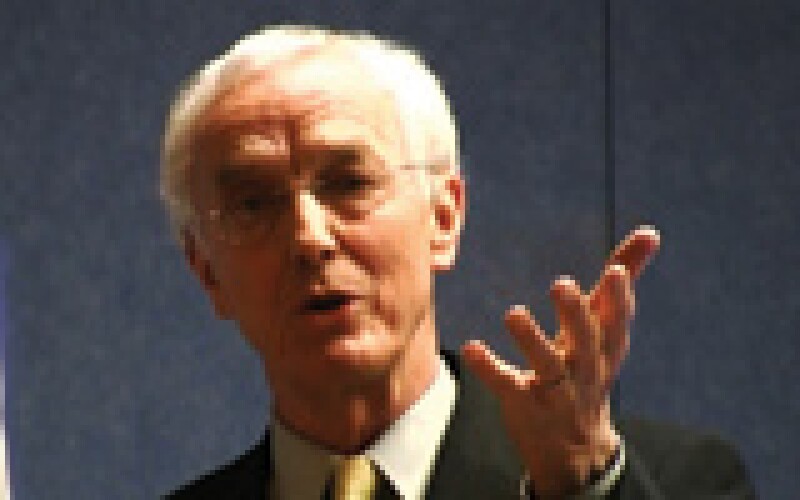
|
One time director of Friends of the Earth in the UK, David Gee has been a lifelong campaigner for environmental causes and is a highly respected figure among those calling for green fiscal reform.
Now living in Copenhagen and senior adviser on science, policy and emerging issues at the European Environment Agency, Gee is one of the most prominent voices calling for a shift from taxation on labour to environmental taxes.
"Taxes on labour and capital have a deadweight cost, you lose welfare if you raise them," says Gee.
The deadweight cost of taxation is the economic loss suffered by society because of the tax, such as reduced incentives to work, to employ or to consume.
"You don't get this with environmental tax," says Gee.
Gee notes several linked factors which are eroding conventional income tax bases. A shrinking employment force, combined with an expanding and an aging population, highlights the need for an intergenerational revenue raiser.
"Environmental tax is a tax on lifetime consumption," says Gee.
These ideas have gained support at the European Commission and are often represented by the OECD in their economic surveys.
| |
Alfredo Gutierrez Ortiz-MenaCommissioner, Servicio Administracion Tributaria, Mexico |
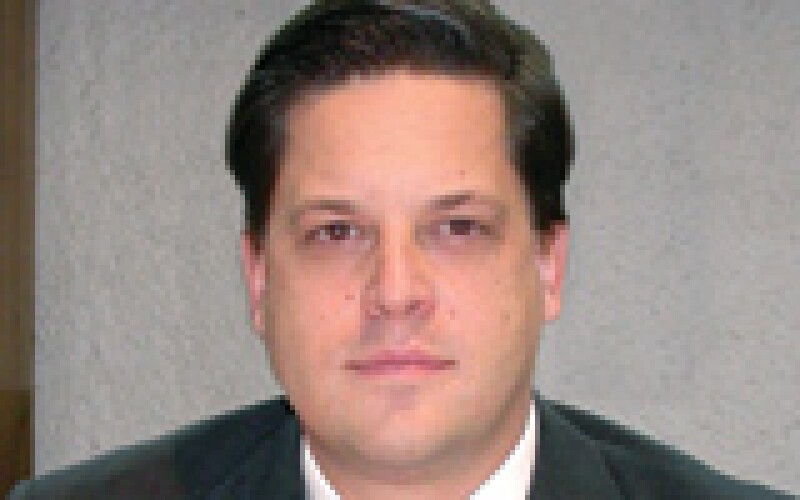
|
Described as a "formidable head of the tax administration," Alfredo Gutierrez Ortiz-Mena has helped to guide Mexico through the global financial crisis, simplification of the tax code in 2009, and is lauded for his transformation of the SAT into an open, transparent and interactive body.
"In the past, the tax administration was a bit hostile towards taxpayers. Alfredo has changed that and the SAT is now more open and willing to engage with taxpayers," said Manuel Solano, director, ITS Latin America, Ernst & Young. "The successes with advance pricing agreements (APAs) are one example of this."
The success of the APA programme is evidenced by the fact that the SAT has issued more APAs than any other Latin American country, a trend which also applies to auditing more generally.
Altering the way SAT is run, and the public perception of the revenue authority, has not been easy, but Gutierrez Ortiz-Mena has facilitated the transition through open dialogue with taxpayers.
"Open administration has been achieved through a tremendous effort in letting taxpayers know what's on the table and ensuring equal treatment," said Solano.
His investment in strengthening the tax department has not gone unnoticed by taxpayers and advisers who regularly interact with the SAT.
"Alfredo has invested large resources hiring very professional and experienced people in the area of international tax and in the litigation department in the past years, which has changed the view of taxpayers and from taxpayers with regards those matters," said Manuel Tamez, partner at Mijares Angoitia Cortes y Fuentes.
Mexico has been a pioneer in terms of dealing with tax legislation and tax collection in Latin America, and this is in no small part down to the work of the head of the SAT. For instance, Mexico was the first country in the region that enacted transfer pricing rules and a worldwide system of taxation, as well as introducing controlled-foreign company legislation, and others in the region have since adopted these.
Mexico has been one of the countries that responded well to the challenges thrown up by the global financial crisis, such as declining tax revenues, and again Gutierrez Ortiz-Mena has been central to this.
"Mexico enacted a flat tax a year before the global financial crisis and this has been a very successful mechanism. Mexico suffered a lot at the outset of the crisis, but our recovery has been faster than neighbouring countries," said Solano.
| |
GlaxoSmithKline, Canada |
Norm Vojir is responsible for handling one of the most notorious transfer pricing cases in the world. The GlaxoSmithKline (GSK) dispute, dating back to the 1990s, is still under deliberation in the Canadian courts, with the company having now filed its arguments to the Supreme Court, meaning a verdict may be delivered soon.
The transfer pricing issues in the case stemmed from the costs GSK Canada attributed to the production of Zantac. It bought the generic drug in powder form from a Swiss company. GSK maintained that the price it paid, which was much more than what the drug cost two Canadian generic drug makers, had to take into account the costs of a licensing deal with its parent.
"The court [ruling] will provide precedents in terms of whether or not the comparable uncontrolled price (CUP) the revenue thinks they have with the generic active ingredient is actually a CUP," said Brad Rolph of Charles River Associates in Toronto. "That's effectively what the CRA is hoping the Supreme Court will determine."
| |
Dave HartnettPermanent Secretary for Tax, HMRC, UK |

|
Dave Hartnett is the Permanent Secretary for Tax at HM Revenue and Customs (HMRC) in the UK. While his influence is waning over the Goldman Sachs debacle – for failing to disclose information concerning an error in dealing with the bank's tax affairs that cost the Exchequer up to £8 million ($12.6 million) – the civil servant is heavily involved with the OECD, helping to expand tax policy in developing countries.
In April, Hartnett told delegates at an IFA tax planning event, held at the OECD, that HMRC confirmed that the UK is to lead a survey into the practicality of global transfer pricing guidelines.
The survey will offer new international operational guidelines for tax administrations and taxpayers.
Hartnett hopes the survey will result in "day-to-day practical guidance" for everyone involved in transfer pricing.
"The survey will not step on the work of the OECD's Working Party 6 [transfer pricing] but will only enhance the understanding of transfer pricing," he said.
"We want taxpayers to share more information with the authorities and we want administrations to rely more on economists to decide whether a transfer pricing case is worth following up.
"I also hope we will see a greater reliance on integrated documentation systems. We have found [in the UK] that this has been very effective in rooting out the key transfer pricing issues," said Hartnett.
| |
Martin HearsonActionAid |

|
Martin Hearson is ActionAid's tax policy adviser. He leads the development of policy for ActionAid's campaign work in tax and, increasingly, his work focuses on engagement with revenue officials and civil society organisations in developing countries.
Hearson takes a leading role in international civil society networks, as a member of the OECD's informal task force on tax and development and of the global board of the Tax Justice Network. He was the co-author of ActionAid's report: Calling Time: How SABMiller should stop dodging taxes in Africa, which led to a specially convened meeting of the African Tax Administration Forum earlier this year.
The SAB Miller report was revolutionary in the way it captured the public's attention, placing the spotlight firmly on transfer pricing in mainstream media. The report shows Accra Brewery, SABMiller's subsidiary in Ghana, pays 4.6% of its annual turnover in management fees to Swiss subsidiary, Bevman Services. In 2010, this figure was $1.5 million. However, ActionAid could not find evidence of any services warranting these fees.
ActionAid hopes the report will lead to SAB Miller undergoing audit in at least five different African countries: South Africa, Ghana, Tanzania, Zambia and Mauritius, who have already met to discuss the issues raised in the report.
ActionAid's report, and others like it – including a recent expose of 98% of UK FTSE 100 companies using tax havens to transfer profits to low-tax jurisdictions, avoiding tax in the UK – commands the world's attention and means companies are more concerned about their corporate image and the way they organise their tax and transfer pricing affairs. Bad press can lead to extensive audits from a number of revenue authorities and a loss in sales.
| |
Connie HedegaardEuropean Commissioner for Climate Action |

|
"My ambition is to see, by the end of my mandate, a Europe that is the most climate-friendly region in the world," says Hedegaard.
With EU targets to see a 20% cut in CO2 emissions by 2020 and a 20% improvement in energy efficiency, few instruments will be as powerful in delivering the results as environmental tax.
Among Hedegaard's key roles at the Commission is to develop the Emissions Trading Scheme and to promote links with similar schemes around the world to help build an international carbon trading market.
It is an ambitious project, but one for which Hedegaard's past life as Denmark's Minister for Climate and Energy has prepared her well. Denmark is considered by climate activists to be ahead of the curve when it comes to environmental taxation and it was Hedegaard who implemented the framework in 2008.
As other European countries look to follow Denmark's lead in setting prices on carbon, Hedegaard's legacy in the field of indirect tax, and her place in the list, are assured.
| |
Ken HenryFormer secretary, Australian Department of Treasury; special adviser to the Australian Prime Minister |
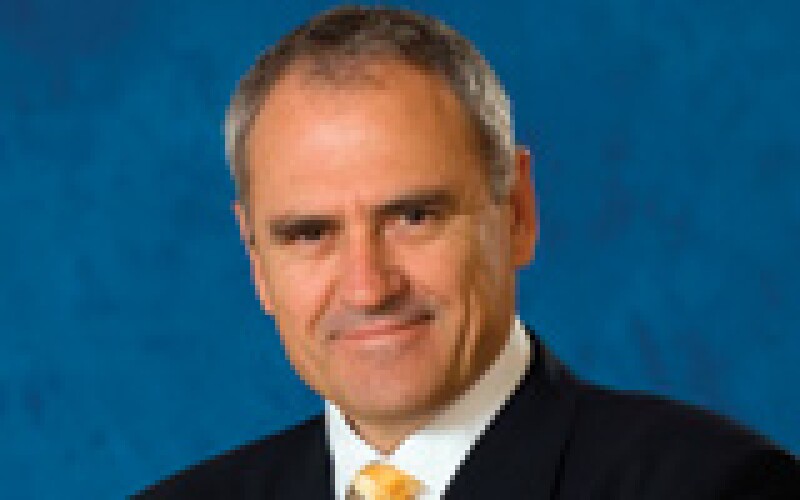
|
Ken Henry, as a special adviser, has the ear of Julia Gillard, Australia's Prime Minister. Back in 2008, a summit at Parliament House called for a "root and branch" review of the tax system. The then Treasury Secretary, Henry was commissioned to write it and came up with 1300 pages after 19 months of work.
Despite initial plans to dramatically overhaul the entire system, the government was criticised for being too cautious in its response to the review into tax reform, despite initial plans to dramatically overhaul the entire system.
The report rejected a number of suggestions from Henry. Of the 138 recommendations, only five were accepted and a further 29 were dismissed. The rest were subject to a further review.
Highlights of the response include the staged reduction in the corporate tax rate and the introduction of a new Resource Super Profits Tax. He also played a key role in the introduction of the minerals resource rent tax.
So far not a single one of Henry's tax recommendations has been implemented. This was always going to be the case because through legislation and through implementation, which is the much harder part of tax reform, means they are not likely to see the light of day just yet. But now, it turns out the Prime Minister wanted to keep him to advise her about tax and Asia. Henry is to use his considerable tax knowledge and experience to tell Gillard how Australia can position its tax system to help the country compete across the rest of the region.
| |
Michael JacobsAcademic, London School of Economics |
Michael Jacobs was former UK Prime Minister Gordon Brown's special adviser on the environment. Out of office, he is a visiting professor at the London School of Economics, but his influence can still be felt in environmental laws today.
Jacobs was advising Brown on environmental matters even before he became Chancellor of the Exchequer.
"I wrote a report in 1996 with Dan Corry of the Institute for Public Policy Research recommending what eventually became the Climate Change Levy," says Jacobs.
Before moving to 10 Downing Street, Jacobs worked at the Treasury where he originated and oversaw the Stern Review on the economics of climate change and oversaw environmental tax and spending reforms in seven budgets. As such, current UK environmental tax policy owes a lot to him.
While Jacobs does not believe tax alone is enough to tackle climate change, he does see it as a necessary tool.
"There is no question that tax can and must be used to tackle climate change," says Jacobs. "Pricing carbon properly is absolutely central to tackling climate change. Without this, the climate change externality is simply not factored into business, finance and consumer decisions."
| |
Joint International Tax Shelter Information Centre |
The Joint International Tax Shelter Information Centre (JITSIC) has had a profound impact on the identification and prevention of abusive tax transactions. At JITSIC's inception in April 2004, the tax commissioners of Australia, Canada, the UK and the US agreed to share expertise, information and best practices in tax administration to tackle abusive tax schemes and deter promotion of, and investment in, such schemes.
JITSIC has been of central importance in raising awareness among taxpayers as to the risks of using or promoting abusive schemes, and this has not only curbed their use in a deterrence sense, but also made it more difficult for those who still wish to engage in abusive tax activities.
The increased knowledge of abusive tax schemes that JITSIC participants have garnered since its introduction also mean that new methods of abuse can be anticipated.
The work of the JITSIC has also enabled further development in the fight against harmful tax practices. The emergence of joint auditing as a way of boosting international compliance, which has benefits for both taxpayers and tax administrators as it reduces the administrative burden of dealing with audits in multiple jurisdictions, is just one example of this.
JITSIC has offices in both London and Washington DC, and the National Tax Agency of Japan has accepted an invitation to join the task force, with representation in London, ensuring the continued expansion of the group's scope and influence for the future.
| |
Xiao JieCommissioner of the State Administration of Taxation, China |

|
China's tax development can be characterised rather crudely in two steps. First, the government attracted foreign business to the country through the offer of tax incentives and favourable tax rates. And with last month China reporting a third quarter growth rate of 9.1%, it seems this tactic has paid off as companies see China as a rich source of new cash. But in recent years, China entered into stage two: to start taxing these businesses more aggressively as the government knows that companies have little option but to be located in China. Xiao Xie has been influential in this progression.
He has been the commissioner of the State Administration of Taxation (SAT) since August 2007. He joined the Ministry of Finance after graduation and had been working there for the previous 23 years. Formerly, he was the deputy minister of the Ministry of Finance before being appointed as the deputy governor of Hunan Province in July 2005.
His efforts culminated in the publishing of China's 12th Five-Year Plan in March. The plan outlines, among other aspects, how the country's tax system will be used to shape economic growth in China.
One of the one of the key initiatives is to expand VAT to gradually phase out business tax. VAT applies to sales and import of goods as well as provision of processing and repair services, while business tax applies to provision of a variety of other services and sales of intangible or real property. China is one of the very few countries, if not the only one, that still tax goods and services differently. Taxpayers have complained about business tax for years, such as duplicate taxation, high tax rate and non-credibility. On a trial basis, two types of service industry, construction and installation as well as transportation and shipping, could be switched to be taxed under VAT as early as in 2012. Such switch would effectively lower the tax burden on those two service industries by allowing input credit. The ultimate goal is to tax all goods and services under one VAT umbrella to provide strong boost for all service industries. Since business tax is one of the major tax revenue sources to local governments for the moment, the allocation ratio of VAT to local governments will be revised upward upon phasing out business tax.
| |
Sarosh Homi KapadiaChief Justice of India |

|
Mohan Parasaran, senior advocate and additional solicitor general of India provides an insight into the work of Kapadia and explains why the whole tax world is waiting for his judgement in the Vodafone dispute.
Ever since Justice Sarosh Homi Kapadia was appointed as an Additional Judge of the High Court of Judicature at Bombay in 1991 (before his appointment as a Judge of the Supreme Court of India in 2003 and later, Chief Justice of India in 2010), he has been known for his contributions to the development of Indian tax law. The wide range of areas within tax law on which he has delivered several landmark judgments is remarkable and only a few are mentioned here to highlight those areas where he has made the most impact in the development of tax law jurisprudence in India.
In the area of international taxation, his judgments, have gone a long way in clarifying the law relating to, transfer pricing (Morgan Stanley), deduction of taxes on salaries paid to expatriates (Eli Lilly), deduction of taxes on royalty payment on software (GE India Technology), and definition of permanent establishments for the purposes of double taxation avoidance agreements (Morgan Stanley). In a time where the growing liberalisation and globalisation of India's economy has presented new and complex forms of economic activity, his judgments on such areas as the taxation of income under production sharing contracts for oil and natural gas (Enron Oil & Gas), and dividend stripping (Walfort Stocks & Shares) have helped lay down a certain and decisive course for tax law to follow in many years to come.
Analysing his judicial output over the last 20 years, two things strike the discerning reader; the clarity and simplicity of his judgments, and a willingness to refer to non-legal sources such as accounting standards, academic works, and business practices to lay down the law. In an era when the quantity of tax cases being heard and decided in judicial fora can overwhelm even the most conscientious tax practitioner, Justice Kapadia's clear and precise judgments present a welcome relief from the verbose and contradictory dicta that plague much of tax jurisprudence. His attempt to adopt a more holistic approach to taxation that moves beyond narrow legal disputes and acknowledges its place in the arrangement of human affairs in business and trade must be welcomed.
Before completing his tenure as the Chief Justice of India in September 2012, Justice Kapadia is also poised to lay down the law on the taxation of offshore mergers and acquisitions of Indian companies in the legal challenge to the tax demand on Vodafone International's acquisition of Hutchison Essar's telecommunication business in India from the Hong Kong based Hutchison Group which was heard by a three-judge bench headed by him. This is probably the first case of its kind being heard by the highest judicial authority, not only in India but anywhere in the world, and Justice Kapadia's judgment in this landmark case is likely to have a decisive impact on the future development of international tax jurisprudence. At a time when several multi-billion dollar cross-border M&A transactions are coming under the scanner of revenue authorities, Kapadia's judgment is likely to lay down the marker for revenue authorities and tax practitioners everywhere on the taxation of such transactions. Chief Justice Kapadia is highly acclaimed for his deep knowledge of law, impeccable integrity, for being a hard taskmaster and for restoring the institutional integrity as well.
| |
Thomas KellerSenior director of group tax, Danfoss |

|
There are many constants in this world like death and the northern star. Companies not liking new taxes is one of them.
But adversity breeds innovation and Thomas Keller, senior director of group tax at Danfoss, is one of the few people to see energy taxes not as an obstacle for business, but an opportunity.
In 2009, partly because the company was making a loss, Danfoss paid more in environmental taxes in Denmark than it did in corporate tax.
Denmark is well ahead of the curve in implementing green tax reform and one of its leading producers of components and solutions for refrigeration, air conditioning, heating, water and motion controls has been keen to take advantage of it.
Danfoss was the first company to introduce thermostats on radiators, a clear example Keller says, of how taxing energy and carbon use can encourage greener innovation, helping both businesses and consumers.
"Much of a company's time is spent looking at tax as a corporate cost, not as a driver of innovation," says Keller. "It's different at Danfoss because we make energy saving products. Our core business is climate and energy, we looked at our business and decided to specialise in it. Tax is more than just a cost for us."
While Keller is supportive of sustainable business with an eye on its carbon footprint, he is looking clearly at the financial incentives.
"We're in it for the money, there's a market for us," says Keller.
Keller says Danfoss has taken a large chunk of the solar power market, but their main focus is on the market for heat pumps which, Keller argues, put give four times as much energy back than what was put in. A handy device at a time when energy is now another item to be taxed.
Keller says the price of energy is directly involved in how his company does R&D, which makes up 5% of its turnover.
Keller is critical, however, of existing environmental tax policies in Denmark, arguing that because the 2009 reform increased taxes on the use of electricity by more than on fossil fuels, it removed some of the incentives for green innovation.
"We argued against it, but hit a wall," says Keller. "Denmark is a welfare society, it needs fiscal revenue."
Nevertheless, Keller is a rare example of companies and activists coming together from different directions to support effective green tax reform. As David Gee, senior adviser at the European Environment Agency put it: "You're one of the winners from this tax. Broad organisations such as trade associations go at the pace of its slowest members. They're not into progressive reform. Will you help us defeat the losers' arguments?"
Whether or not Keller is on board for that, remains to be seen, but if more companies follow his example, they will recognise that tax does not have to be taxing and contentment is the enemy of invention.
| |
Jocelyn LamPresident, Capital Markets Tax Committee of Asia |
The Capital Markets Tax Committee of Asia (CMTC) is a financial services industry body consisting of a number of banks, investment banks, securities firms and other diversified financial services institutions operating in Asia who are represented through their regional tax directors, most of whom work in Hong Kong.
Jocelyn Lam, CMTC president, highlights the importance of the CMTC.
Why the CMTC exists
The CMTC provides a forum for discussion by corporate tax managers responsible for the tax affairs of investment banks, securities firms, banks and other diversified financial services institutions of topical taxation issues in Asia affecting their capital and securities markets and similar activities. We represent the interests of our members through acting as the respected voice and to participate in liaison or advocacy activities on tax matters either directly or indirectly through representation with other groups or societies concerned with or by fiscal matters.
Why the CMTC is influential
We have a broad representation from the industry in the region consisting of tax professionals with diverse international background and knowledge base. We have a good network through our members and advisors to allow our voices be heard by the right forums and decision-makers to make a difference. We are proactively involved in tax policy formation so we can pre-empt issues and not solely deal with issues when they arise.
What the CMTC does
In the past few months we have made submission to the OECD on draft changes to definition of beneficial ownership in the model treaty. It was followed by a roundtable discussion with Pascal Saint-Amans (the next head of the OECD's Centre for Tax Policy and Administration from Feb 1 2012) during his visit to Hong Kong in September to present our comments face-to-face.
We have made numerous to the Indian Parliamentary Standing Committee to present our recommendations on the Direct Taxes Code on key topics such as GAAR, FII (financial institutional investor) taxation, expansion of deemed income rules and branch profits remittance tax.
Finally we recently made submissions to the State Administration of Taxation in China on QFII taxation, as well as in the process of forming a government-industry joint working group to study and formulate a VAT regime for financial institutions operating in China as part of the country's indirect tax reform.
| |
Michael LennardUN |

|
Michael Lennard is the chief of international tax cooperation and trade in the financing for development office (FDO) of the UN. The UN is drafting a practical manual on transfer pricing for developing countries. The manual aims to provide clearer guidance on the policy and administrative aspects of applying transfer pricing analysis to some of the transactions of multinational enterprises (MNEs) in particular for developing countries. A number of countries outside the OECD are developing and implementing transfer pricing regulations and UN is often seen as more representative of the countries' overall economic needs.
At its annual session in 2009, the UN Committee of Experts on International Cooperation in Tax Matters mandated a group called the Subcommittee on Transfer Pricing – Practical Issues to develop a practical manual on transfer pricing to reflect the realities for developing countries, at their relevant stages of transfer pricing implementation and development. In fulfilling that work (expected to be completed in 2012) the subcommittee draws upon the broad expertise of its participants and from other sources as it sees fit. Its work is not funded so it does not commission studies. The manual will be based on these principles:
That it reflects the operation of Article 9 of the UN Model Convention, and the arm's-length principle embodied in it, and is consistent with relevant Commentaries of the UN Model.
That it reflects the realities for developing countries, at their relevant stages of capacity development.
That special attention should be paid to the experience of other developing countries.
That it draws upon the work being done in other organisations.
| |
Michelle LevacCanada Revenue Agency; OECD |

|
As chairwoman of the OECD's Working Party No 6 (WP6), responsible for carrying out the project on the transfer pricing aspects of intangibles, Levac is a very influential woman in transfer pricing this year. The draft document is expected in 2013 but many think the project is too complex to deliver anything at such an early date. (Info on why project is so important to taxpayers)
Levac is also the transfer pricing specialist at the Canada Revenue Agency and a director on the board of the Canadian Institute of Chartered Business Valuators. Levac has more than 16 years of experience in the determination of arm's-length price in the context of business equity valuation and transfer pricing, including testifying as an expert witness on valuation issues and negotiating transfer pricing cases with foreign tax authorities. Levac researches, analyses and provides technical expertise on transfer pricing issues for the Canada Revenue Agency and is active in developing the OECD Transfer Pricing Guidelines.
The intangibles project will give multinationals and revenue authorities, globally, more guidance and clarity when approaching intangible assets.
"WP6's enhanced engagement with [non-OECD members] and business will ensure relevant guidance is developed and applied by a greater number of countries worldwide. WP6 has the potential of adding significant certainty, in the near future, to the transfer pricing of an increasing number of material transactions involving intangibles. WP6 will also be promoting best practices and developing practice tools to increase efficiencies in the administration of transfer pricing," said Levac.
| |
Sander LevinUS House of Representatives |
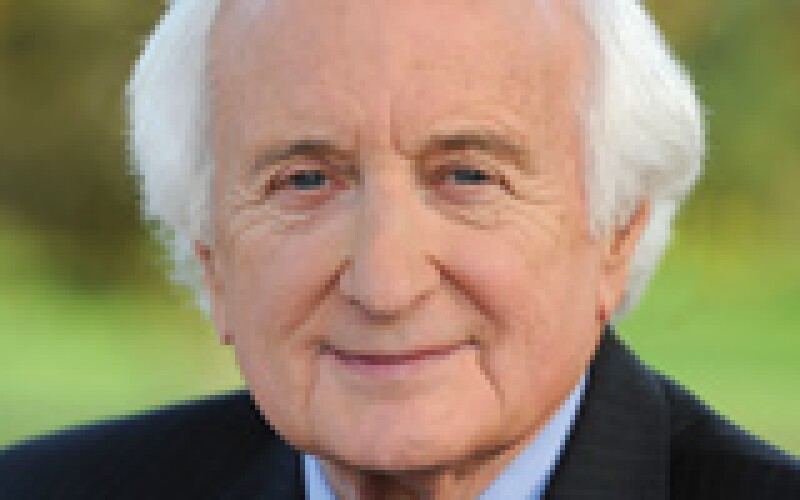
|
Sander Levin is the ranking member of the House Ways and Means Committee which handles, among other areas, tax policy. In this role, he has overseen important efforts aimed at reforming tax law to aid recovery from the global financial crisis.
As well as having a key role in salvaging or creating around 3.3 million jobs through the American Recovery and Reinvestment Act of February 2009, Levin has introduced various legislative changes to help small and medium sized enterprises, including the elimination of capital gains tax on investments in qualified small business stock in 2010.
He is a strong proponent of the R&D tax credit, and has worked closely with Rep. Dave Camp on this, striving to ensure companies have an incentive to invest in R&D in the US. Levin is also a frontrunner in championing international tax reform with a view to ensuring business competitiveness.
The contribution of the Levin family, more broadly, to tax, is also noteworthy. Sander is the brother of Carl Levin, the Michigan Democrat who, together with Senator Chuck Grassley (Rep-Iowa), proposed the Levin-Grassley Bill aimed at requiring states to acquire information on the beneficial ownership of companies operating therein.
| |
Oupa MagashulaCommissioner, South African Revenue Service; Chairman, African Tax Administration Forum |
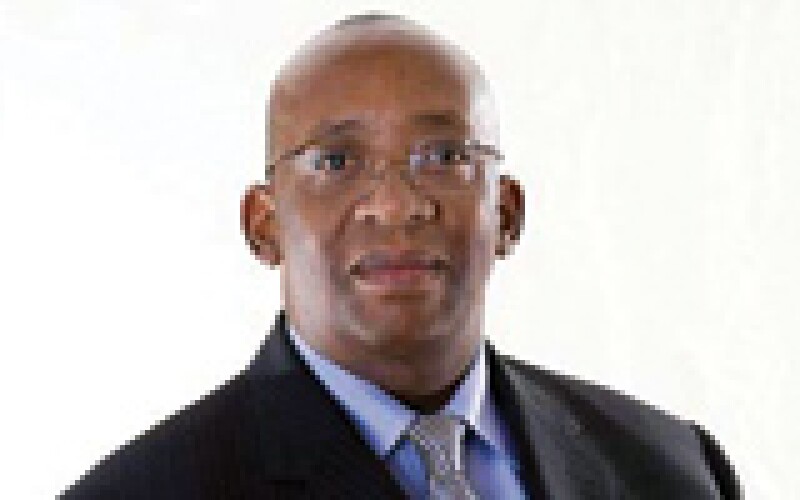
|
Oupa Magashula is leading the way for enhancing and harmonising tax administration across Africa.
As the chairperson of the African Tax Administration Forum (ATAF), Magashula has brought together 34 tax administrations from across the African continent to provide skills training and to create a platform for African tax and customs administration to develop and share expertise and experience.
"The biggest problems tax administrations face is the lack of capacity. We are trying to improve this through ATAF but a lot of our members need more capability. The result of this is that they are unable to investigate complicated structures and undertake complex audits," said Magashula.
In the 18 months since ATAF was created, Magashula has arranged a number of events all with the target of improving knowledge and cooperation.
"The first task was to draw up an agreement for all ATAF members to sign. This involved a lot of work as trying to get 34 countries to agree to a set of rules is no easy task.
"We are not a political organisation and we will not let politics hold back the development of tax administration in the continent."
Despite the efforts of the ATAF, Magashula is quick to acknowledge that the development of the organisation will not grow without outside help.
"We have people over from HM Revenue & Customs in the UK who are helping to develop our transfer pricing rules and we will soon be taking on 75 officials from India to help us create a simple system."
While the size of some member's tax departments pale into insignificance when compared to the tax teams at accounting firms operating in that country (Malawi's tax audit team is outsourced to Deloitte), Magashula is about to oversee the continents first joint audit.
"In the next few weeks seven members of ATAF will be working together on a joint audit of a large multinational. This is a great step forward."
ATAF also recently launched a weekly newsletter for officials and taxpayers to encourage more dialogue between the two sides.
All of these developments have come about as a result of the hard work of ATAF and the determination of Magashula to improve Africa's tax administrations.
| |
Sam MarucaIRS, US |
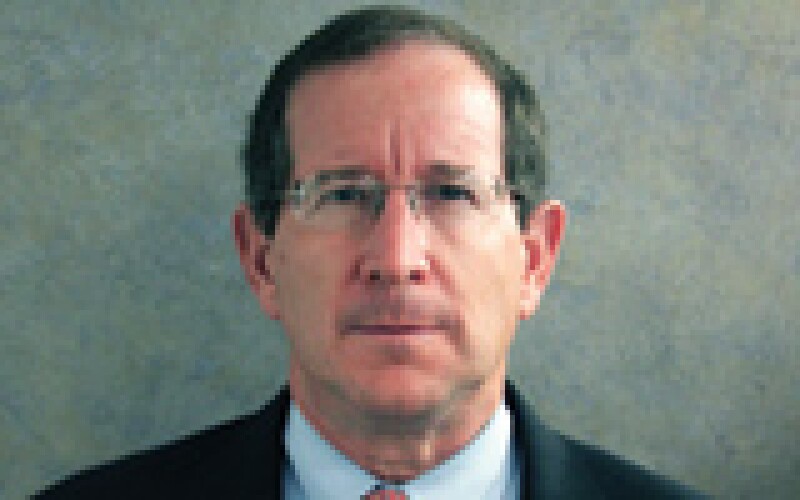
|
Samuel Maruca is the transfer pricing director for the large business and international (LB&I) division at the IRS – a new position, marking the importance of transfer pricing in global affairs. Maruca has the influence to change the process of dispute resolution in the US – a much needed renovation at the IRS, which has a major back-log of MAP and APA cases.
"Surveys show that transfer pricing is the most significant international tax issue globally, and international tax matters generally are a high priority for the IRS," said Maruca. "The IRS is also in the process of migrating to an issue-based model from a more case-based model. Given these trends, it makes sense to centralize and integrate the IRS' approach to transfer pricing. Creating an integrated practice under a single director will enhance case development at all levels, build the knowledge base, promote consistency, and improve our competitive position vis-à-vis our treaty partners."
Maruca will develop and coordinate LB&I's transfer pricing strategy, training, and operational approaches to key transfer pricing matters arising in field examination, competent authority and the advance pricing agreement program.
It is likely the US will focus more on both inbound and outbound transactions, involving foreign-controlled domestic operations and US control of foreign operations, since this appointment.
| |
James MirrleesEconomist |
Nobel prize-winning economist, Sir James Mirrlees, headed this year's Mirrlees Review, which brought together a group of international specialists to examine the features of an efficient tax system in the UK.
The review identifies the characteristics of what its authors consider to be a good tax system for any open, developed economy in the 21st century.
Looking at the package of taxes in the UK, from corporate and indirect, to personal, it assesses the extent to which the UK meets the ideal and how it could be improved. One of the review's most radical suggestions was removing the zero rate of VAT, not least because charging VAT on essential items can hit poor households hard, while hurting the retail sector.
"Our proposal is that benefits should be raised so as to compensate lower income households for the increased cost of food, children's clothes and so on," Mirrlees tells International Tax Review. "That would make the system fairer as well as more efficient. We would oppose any increase in VAT on food items that was not accompanied by compensating changes in income-related taxes and benefits."
Mirrlees also recommended simplifying the tax system, an important objective already high on the government's list of priorities, and setting a consistent price on carbon – an idea that carries a lot of weight with green fiscal reformers.
| |
Sushil ModiChairman, Empowered Committee of State Finance Ministers, India |

|
When Sushil Modi, finance and deputy chief minister of the state of Bihar, was elected this year to chair the committee in charge of implementing GST, he became one of the most important tax officials in India.
GST has been delayed a number of times and the latest predictions suggest it will miss its April 2012 implementation date.
The process has been marred by disagreements between the states, with a number of Bharatiya Janata Party (BJP) state governments opposed.
It falls to Modi to build a consensus on the issue and as a BJP politician, he may be ideally placed to do just that.
Last month Modi announced the creation of a new GST network which will implement the IT infrastructure necessary to introduce the new tax.
"We have approved the special purpose vehicle (SPV) and requested the go ahead for the IT infrastructure," says Modi. "The SPV would solely be responsible for running of the GST portal."
Despite the delays, the new network is a sign of the Modi's commitment to a smooth roll out of GST.
| |
Richard MurphyBlogger |

|
They say you can judge a man by the strength of his enemies and Richard Murphy, an accountant who largely turned his back on his trade to become a tireless campaigner for tax justice, has made some very powerful ones in the world of international business and among his former peers.
Much like Marmite, you may love him or hate him, but Murphy has never shied away from his campaign to stamp out tax avoidance through country-by-country reporting, a standard he claims he was instrumental in devising.
"We want to know what tax companies owe, where they owe it and the profits and losses they make in each jurisdiction," says Murphy. "And we want to know how many people you employ and where. We want to know who you exploit. That is what this is about, the poorest people in the world."
A founder of the Tax Justice Network, Murphy is always among the first to leak the information tax avoiders and tax authorities don't want you to hear on his daily blog. Multinationals may not like him, but they ignore him at their peril.
| |
Chris NeedhamVAT director, General Electric |

|
Chris Needham is a taxpayer in the rare position of having worked for both a tax authority and one of the Big 4 accounting firms. He spent five years as a senior VAT Inspector with the then HM Customs and Excise in the UK, before joining PwC as a VAT consultant.
Now heading up General Electric's VAT department, he has been one of the most vocal taxpayers on the need for European VAT reform, addressing conferences around the world on the issue.
Speaking to a packed event in Milan to wrap up six months of public consultation on the future of the European VAT system, Needham noted the crucial role business plays in collecting the tax and tackling fraud.
"Business is the unpaid tax collector for the government and must bear the administration burden," said Needham. "Legitimate businesses are partners with the authorities, not criminals."
He argued that business wants to see one simple VAT system, not 27 separate ones, including binding rulings, one compliance process, a harmonised rate across the EU and a partnership against fraud.
"My Easter holiday was ruined by a deal that nearly didn't go through because of complexity," Needham said. "It's harder to do a deal within the EU than outside it because of the VAT system. That's a terrible thing to have to say."
| |
Michael NoonanFinance minister, Ireland |
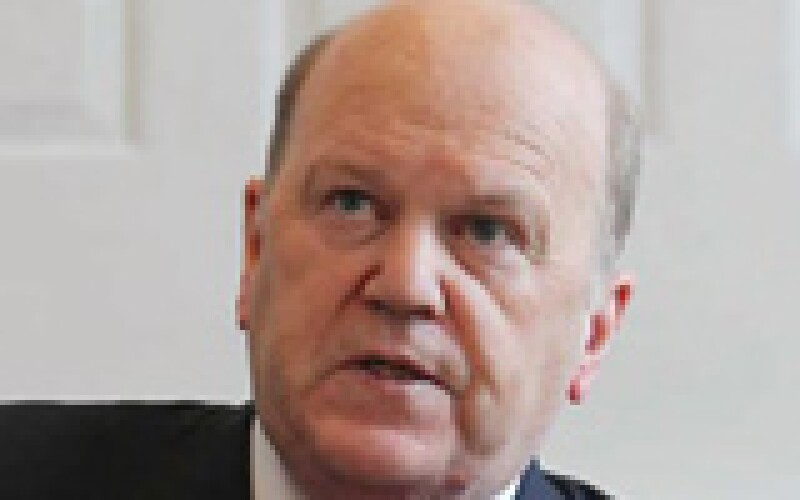
|
Given Ireland's economic woes, it might seem curious to include its Finance Minister in a list of the world's 50 most influential people in tax. But Michael Noonan, who assumed office in March this year, has come up with an interesting way to stimulate sectors of the Irish economy with targeted VAT cuts, temporarily lowering its rate for a number of businesses including hotels and restaurants from 13.5% to 9% in a bid to boost its tourist industry.
"The purpose of this targeted VAT relief is to boost tourism and stimulate employment," said Noonan.
While the cut was indented to run until 2013, it may well become permanent as signs are that businesses are passing on the benefit to consumers.
If Noonan's targeted VAT exemptions work to save struggling sectors of Ireland's economy, it may well prove an influential model for other countries to follow, including neighbouring Britain where the government has so far resisted opposition and industry calls for VAT cuts.
| |
Office of Tax Simplification, UKMichael Jack & John Whiting |

|
No UK taxpayer would call Preston a test bed of the simplicity of the country's tax system, but, says John Whiting (pictured on the right), it illustrates well the impact of Britain's Office of Tax Simplification. The tax policy director of the Office of Tax Simplification was speaking to International Tax Review after a workshop about the Office's small business review with 12 taxpayers in the north of England city.
"They [the government] can't gainsay this," he said. "This is what Preston people are experiencing."
When George Osborne, the new UK Chancellor of Exchequer, and David Gauke, the tax minister, inaugurated the Office of Tax Simplification (OTS) in July 2010 it was a statement of intent as much as a promise that the tax system would become easier to follow.
The establishment of the OTS, which advises the government on how to simplify the tax system to reduce the compliance burden on companies and individuals, was one sign of the just-installed government's commitment that Britain would be open for business.
Michael Jack, who began the Tax Law Rewrite project when a Treasury minister in a previous Conservative government, became the OTS's first chairman. Whiting, the well-known former PwC tax partner, was appointed its first tax policy director. Both were confirmed in their positions permanently in September 2011.
"We were given two small projects, to start with," says Whiting, "but I had firmly in mind a third project: get established, create a way of working, start to show we can make a difference. Our reports have begun to have influence with the media, but more importantly with Treasury and ministers."
So far, the OTS has identified more than 1,000 reliefs in the UK tax system and made recommendations to the government about which of these should be retained, simplified or abolished; begun a project to simplify tax administration for small business and started to review how pensioner taxation and employee share schemes could be made simpler.
The effect on large business has not been dramatic yet, though the OTS is not supposed to be a substitute for tax reform, such as amendments to controlled foreign companies legislation. which is also under way. It is the Office's intent to try to simply the system that is important.
While Whiting acknowledges that, so far, the OTS's target has been the simplification of the taxation of small business, he points to the just-started share scheme project as an example of work relevant to large business.
"These schemes are widely used by big business. It is horrendous trying to comply in various different countries using the practical share schemes these companies have proposed," he says.
| |
Jeffrey OwensDirector, OECD Centre for Tax Policy and Administration |
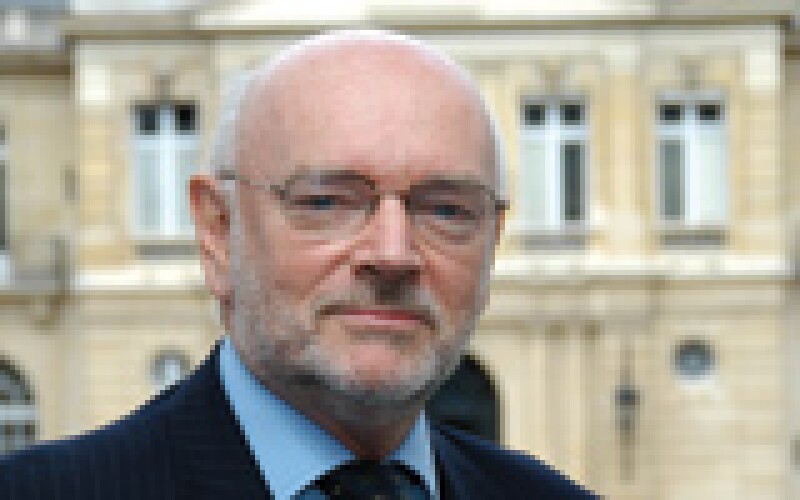
|
Nobody involved in international tax would dispute the inclusion of Jeffrey Owens as a key influence on tax. Had he achieved just half of the things he has done during his more than 30 years as a civil servant, there would still be a case for his place being warranted, but his entry in this list focuses on Owens' leadership of, and contribution to, the OECD project on beneficial ownership.
The distorted and varied interpretations of the concept beneficial owner have led to a risk of double taxation and non-taxation, prompting the OECD to seek clarity on the term's meaning. A clear definition or understanding is desirable because the term influences the applicability of treaty benefits to those receiving dividends, royalties and interest.
"More than 30 years after the introduction of the beneficial ownership concept in the OECD model treaty, uncertainty still remains even though it is a very important concept in international tax," said Marc Sanders, partner at VMW Taxand in the Netherlands. "The Indofood and Prevost cases are clear examples of the different approaches [in terms of economic interpretation versus legal interpretation]."
On April 29 2011, to address problems such as the definition being too broad – which has led to repeated discussions and court cases – the OECD Committee on Fiscal Affairs (CFA) issued a discussion draft to gauge stakeholder views. The CFA Working Party 1 has been working with the material gathered since that point, and work continues on tying down this slippery concept.
The OECD's recognition of the problem has been unanimously lauded by stakeholders, who understand the complexities involved in reaching a concrete definition. One that is too broadly worded, for instance, would open the door for the authorities to attack real, commercial structures which are not aimed at treaty abuse.
The issue is also of great importance to charity and development organisations, which point out that without knowledge of who owns what, it is impossible for developing countries to take action against corruption.
Following the work of Owens and the members of Working Party 1, the World Bank has also joined the call for account and asset-holder information to be made readily available. Where information is automatically available, compliance levels are increased, meaning tax evasion is reduced and revenue-raising (particularly for developing countries) is facilitated.
| |
David PenneyPresident, Tax Executives Institute |

|
International Tax Review: Why did you decide to get involved in TEI?
David Penney: I was introduced to Tax Executives Institute (TEI) 20 years ago by my boss at General Motors. I had joined the company from Revenue Canada, and as part of my orientation, she described membership in TEI as essential to my development as an in-house, corporate tax professional. She explained the opportunities afforded to members to engage in a broad-based advocacy process, to network with other in-house professionals, and to obtain high-quality education. She could not have been more correct.
ITR: What are the top three issues facing your members around the world?
DP: First, the globalisation of taxation. It is trite to say business has gone global.
Governments and their revenue authorities are incrementally enacting laws and enforcement mechanisms that focus on ensuring they get their share of the global tax pie. Moreover, tax authorities are increasingly cooperating with one another.
Second, financial reporting standards and related control processes, especially for public enterprises, have become exceedingly complex. The related in-house tax administration is often burdensome, and places significant strain on departmental resources and workload priorities.
Finally, for individual members, keeping up with these developments, tax professionals are not only faced with an increase in their workload, but also with the complexity of the laws and business environment that they work in. TEI is an essential pressure valve for members because of its focused educational and advocacy opportunities, as well as its status as an unparalleled network for in-house tax professionals.
ITR: How much lobbying does TEI do?
DP: TEI does not engage in lobbying as that term traditionally is understood. Instead, utilising its extensive network of technically competent members and legal staff, TEI and its committees generate a broad range of technical and policy submissions on a broad array of issues. Last year alone, the institute filed more than 50 substantive submissions with various tax and financial regulators around the world, including the OECD and the European Commission. In addition the institute participates in myriad issue-specific meetings with tax regulators from Canada, the US, the OECD, UK, and elsewhere.
ITR: In your opinion, how influential can the TEI be in shaping tax policy?
DP: The TEI is often described as an organisation, not of tax representatives, but of taxpayers themselves. The unique perspective we bring as in-house tax professionals to the review of tax rules and regulations (we are not only planners but implementers) has made TEI very influential in the area of promoting sound tax rules and effective tax administration. Our views are regularly sought by regulators and policymakers, in particular, because we represent such a broad cross-section of the business tax community. With almost 7,000 members employed by more than 3,000 companies worldwide, we are able to effectively draw on a deep reservoir of experiences to help shape tax policy.
ITR: What does the future hold for the tax director at a multinational?
DP: The scope and complexity of a tax director's duties will expand in the coming years.
Companies will remain under pressure to perform profitably and efficiently, with fewer resources. Those pressures will include scrutiny by a greater number of taxing authorities and other regulators. The tax director will be at or near the centre of these activities and will be expected to perform. To succeed, tax directors will have to maintain proficiency with a broad array of rules, policies and procedures. I am confident that in-house tax professionals will be more than up to these challenges, in large measure because they are members of TEI. I am truly honoured to lead the organisation.
| |
Pascal Saint-AmansOECD |

|
Pascal Saint-Amans will become director of the OECD's Centre for Tax Policy and Administration on February 1 next year, when Jeffrey Owens retires.
As head of the International Cooperation and Tax Competition Division in the CTPA from September 2007, Saint-Amans was responsible for the OECD's work on harmful tax practices, money laundering and tax crimes, the tax aspects of countering bribery of foreign officials and administrative cooperation between tax authorities. In October 2009 he was appointed head of the Global Forum Division, created to service the Global Forum on Transparency and Exchange of Information for Tax Purposes, a programme with the participation of more than 100 countries.
International Tax Review: You've been very involved in tax transparency and exchange of information at the OECD. Will this be one of the central themes of your leadership?
Pascal Saint-Amans: No. For the future, no. Transparency of course is key, and we do have an agenda there. But for me, the core business of the OECD is tax treaties, transfer pricing, and the elimination of double taxation. We should be back to our core business, I'm not sure we've left it, but we could strengthen that to make sure we have the right and implementable principles. On this part of the core business, maybe what could be done is more emphasis on the practical aspects. How do you make sure that developed as well as developing countries implement the rules properly. Sometimes I wonder whether we are over sophisticated on transfer pricing and tax treaties and maybe we should bring more clarity sometimes.
ITR: Is there anything you would do differently from Owens?
PS-A: Of course, yes. Jeffrey has developed something which is really amazing and that's a great success story. The CTPA cannot be managed without him as it was with him. We need to change the business model and structure it differently, make sure we have a strong team here and sustainable development for the future. And we need to build on the successes that Jeffrey has ensured.
ITR: What projects that Owens began are you particularly keen to expand on?
PS-A: It's not a one man show, the OECD. But I would like to develop the holistic approach to the non-OECD countries so they're happy with our work, they're more involved and we learn from them. We need to strengthen our relationship with the IMF, the World Bank and the UN. There is no turf here, we should converge and make sure we deliver at the best cost. I have started to develop strategy. I'm meeting a lot of government officials. In the coming weeks, I'm travelling to South Africa, Argentina, China, Brazil, India. I've just got back from Turkey and I'm going to Washington, DC. I'm also meeting a lot of people in the business community, which I think is very important.
For the full interview with Pascal Saint-Amans, check out the February 2012 issue of International Tax Review.
| |
John SamuelsHead of Tax, GE, US |

|
As vice president and senior counsel for tax policy and planning at GE, the biggest industrial company in the US, which he joined in 1988, John Samuels carries some influence. The breadth of his experience as a tax partner at a law firm and five years as deputy tax legislative counsel and tax legislative counsel for the Treasury Department in Washington, DC, as well as a lengthy academic career, first at New York University and for the last 14 years at Yale, means that he is influential and his advice is highly valued. In 2009, he received a Distinguished Service Award from the Tax Foundation, a Washington, DC group that provides tax policy education.
Being one of the world's biggest companies means that GE's position on different issues comes in for close examination and tax is no exception. Jeffrey Immelt, the company's chief executive, has been prominent in the calls from US business for an overhaul of the country's corporate tax system. This visibility has led to some critical media comment. For example, the New York Times ran an article in March this year about GE's tax minimisation strategies. The company confirmed to the newspaper that the tax department had a staff of 975. The article, which discussed legitimate tax planning techniques and benefits that are also available to other taxpayers, was covered widely by other mainstream media.
The role of head of tax at GE guarantees that Samuels's impact will always be significant.
| |
Wolfgang SchäubleFinance minister, Germany |

|
Germany has long been at the heart of taxation issues within the EU. Often collaborating with fellow top 50 member Francois Baroin, his French counterpart, Wolfgang Schauble – whose father was a tax adviser – has been influential in championing the recent financial transactions tax (FTT) proposal and strongly advocated movement to a common corporate tax base (CCTB) and increased European tax harmonisation.
When the EC made its proposals for a common consolidated corporate tax base (CCCTB), nine member states objected to them on the grounds of subsidiarity – they did not believe the proposal's aims could be better achieved at union level – while others rejected them based on loss of sovereignty. Such opposition meant the proposals needed changing, and Schauble was the first man on the scene with an alternative idea – the CCTB.
The CCTB would mean the same rules are used in each country, but unlike the CCCTB taxable income would be determined per country. This would allay German fears that the CCCTB could lead to foreign losses being pooled against German profits.
Comments from the Ministry of Finance that "the [CCCTB] process is at the very beginning; at the end we may have something very different," imply that Schauble intends to continue pushing for the CCTB.
Schauble's other main influence on international tax comes in the form of his commitment to the FTT, which is so staunch that he has even suggested that Germany will go ahead and implement its own tax on financial transactions if it is not adopted elsewhere.
On top of sending a letter to the EU Commission calling for the implementation of an FTT, initially at European level, Schauble and Baroin have also roped in the help of American billionaire philanthropist, and Microsoft co-founder, Bill Gates. This was a smart move as it has succeeded in heightening awareness of the issue in the US and globally.
In a more domestic context, Schauble spearheaded the German movement to reach a deal with Switzerland to stop the prospect of tax evasion through Swiss accounts from influencing Germans' investment decisions. Again, Schauble was the first finance minister to tackle this issue, and the agreement he signed with the Swiss has served as a blueprint for further agreements, such as that reached between Switzerland and the UK.
| |
Algirdas SemetaEuropean Commissioner for Taxation and Customs Union, Audit and Anti-Fraud |

|
As the European Commission's top tax man, Algirdas Semeta, Lithuania's former finance minister, deserves a place in this list for his work across many fields of taxation and his attempts to use tax policy to integrate the single market.
Many of the tasks ahead of him, from the challenges of implementing a common consolidated corporate tax base to the best ways to tax the financial sector, are contentious, fraught and could fall to the myriad squabbles between member states.
Semeta is soldiering on with proposals on both these topics, however, while pushing to reform the EU's VAT system to make it simpler and more efficient.
"VAT comprises one fifth of member states' tax revenue," says Semeta. "The importance of VAT has been increasing, especially in the wake of the financial crisis. The shift from direct to indirect tax is likely to continue because direct tax is more harmful to competition."
The tasks ahead of him may seem insurmountable, but Semeta has been consistently ambitious in his plans and, whether or not he succeeds, he will certainly have left his mark.
If all politicians are gamekeepers or gardeners, maintaining the status quo or making changes, then Semeta is definitely the latter.
| |
Sandro SerpaFederal Revenue, Brazil |
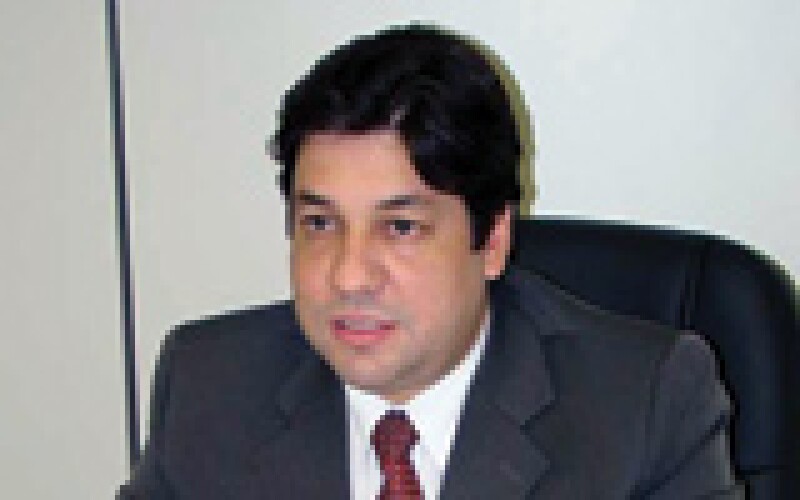
|
Sandro Serpa is the undersecretary of taxation of the Secretariat of the Federal Revenue of Brazil – one of the largest global economies to divert from the OECD transfer pricing guidelines, causing a number of double taxation problems for taxpayers.
The Revenue is adjusting its regulations, to avoid double taxation and, consequently, is becoming more aligned to the OECD but, at the same time, the country is conspicuous by its absence at OECD meetings, where it has been invited to attend as an observer.
Brazil could influence other developing countries that are considering implementing transfer pricing regulations, by its separation from the OECD. Combined with the work the UN is involved in – preparing a practical manual for transfer pricing in developing countries – it could encourage other countries to move away from the OECD standard.
| |
Clare ShortChairperson, Extractive Industries Transparency Initiative |

|
Other organisations trying to engage governments, taxpayers and the civil society in a grown-up discussion about tax issues could do worse than follow the example of the Extractive Industries Transparency Initiative (EITI). The organisation has managed to get a range of interest groups together to discuss how they should behave in resource-rich jurisdictions around the world.
The 12 principles agreed at a conference in London in 2003 are the starting point for engagement with the EITI. They include calling on the governments, companies, civil society groups, investors and international organisations that agree to implement the standard to contribute to helping the public understand government revenues and expenditure.
Clare Short, the former international development secretary in the British government who chairs the EITI board, plays a key role in driving the group's work.
International Tax Review: How did you get involved in the EITI?
Clare Short: I got involved originally when in government. There was the Publish What You Pay coalition, which was hostile to mining companies, and I was involved in bringing it and the companies together and moving forward with these issues. Then after I left Parliament the EITI asked me if I'd like to be chair and I said yes.
ITR: Tax compliance is not mentioned explicitly in the EITI principles or criteria. What role does it play and could it play?
CS: The EITI has very stringent criteria for companies to make clear all its payments and government to make clear all its receipts. It is also about making sure governments are held accountable. It is the first powerful entry into the debate.
ITR: Why has EITI been more successful than other organisations in engaging taxpayers on issues of transparency?
CS: The initial focus was on company payments and government receipts. Companies come under attack because prices go up and down. If there is instability you get anger and resentment, so they have decided that transparency is good for them.
ITR: Most of the EITI candidate and compliant countries are from the developing world, though the US and Norway have signed up to implement the standard. Is the aim to have bigger resource-rich countries, such as Australia and South Africa, join as well?
CS: Yes. Two-thirds of the membership is from Africa. When we ask countries such as Chile and Brazil, they say: "is this just another standard from the North?"
If countries of the North (Northern Hemisphere) do not join, it is a double standard. We want to be clear about what tax they are paying. It is for the benefit of all – North and South, OECD members and non. Transparency about tax is a good idea for everyone.
| |
Douglas ShulmanCommissioner, IRS, US |

|
As the 47th Commissioner of the Internal Revenue Service (IRS), Shulman is clearly well placed to influence tax. But his impact goes deeper than merely overseeing IRS undertakings, and is particularly being felt at present, with the implementation of the Foreign Account Tax Compliance Act (FATCA), and Shulman wants other jurisdictions to take on similar measures.
FATCA, enacted as part of the Hiring Incentives to Restore Employment (HIRE) Act 2010, was designed to enlist foreign financial institutions to help identify non-compliant US taxpayers. Described by Shulman as "the most important development in international information reporting in a generation" and as a "big step forward in our efforts to reduce tax evasion by creating transparency and accountability in offshore financial markets", it will impose a 30% withholding tax on any US source withholdable payment to a foreign financial institution made after January 1 2013. However, after stakeholders questioned the practicality of FATCA implementation by January 1 2013, IRS and Treasury decided to replace that start date with a phased implementation approach.
This stands to show the flexibility and open dialogue with taxpayers that Shulman has helped to instil at the IRS. This is the sort of constructive development that, if adopted elsewhere, would make the international tax environment a much more amicable place.
Shulman's tenure has overseen what he refers to as "the next rung in the evolutionary ladder of international tax administration: the progression from cooperation to coordinated action on global tax issues". During this time, Shulman has been central to international efforts aimed at increasing coordinated action, such as joint audits, and his role as OECD chairman has given him the ideal platform to enhance such action.
| |
Wayne SwanTreasurer and Deputy Prime Minister, Australia |
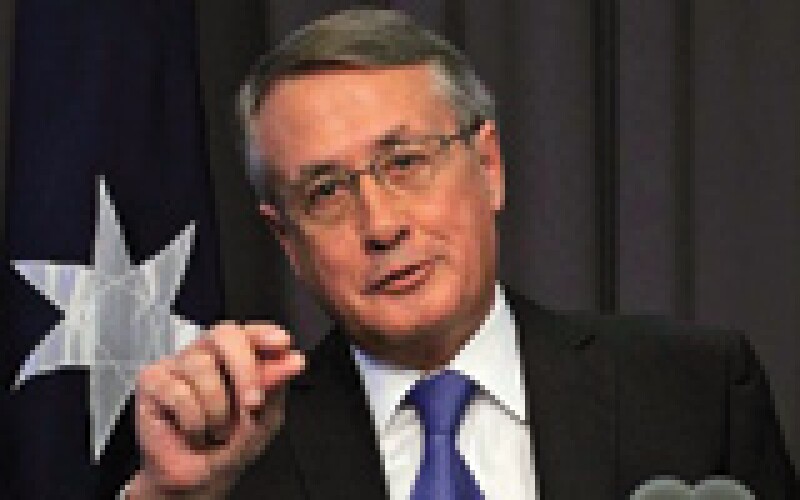
|
Not necessarily the most popular figure in his native country, Australian Treasurer and Deputy Prime Minister Wayne Swan was recently voted Finance Minister of the Year 2011 by Euromoney, and from a tax point of view, too, it is clear to see why.
Swan's name, by his own admission, is tied to Australian tax reform. He has broadened the scope of discussion around reform and commissioning the A Future Tax System report (the Henry report – see Ken Henry in top 50).
"During my time in Federal Parliament I have been associated, in particular, with reform of the tax and transfer payments system," said Swan, and this stretches, too, to climate change and the Labor government's carbon tax.
Under his guidance, Australia has not only taken action on climate change by implementing the controversial price on carbon, but also installed the minerals resource rent tax (taking effect July 1 2012) to replace the unpopular resource super profits tax and facilitate the extension of the petroleum resource rent tax, as well as updating the R&D incentive scheme and helping lead the debate on reform of the tax code.
"The Assistant Prime Minister and Treasurer has led a substantial tax reform programme for the government," said Teresa Dyson, partner at Blake Dawson. "This has resulted in the development of new taxing regimes, notably the MRRT and reform programmes across a broad range of taxing regimes, including the way international arrangements are taxed, infrastructure concessions, taxing investment structures and taxation of trusts."
"During Wayne Swan's time as Treasurer, the volume of tax amendments, reviews and reforms has been frenetic," she added.
| |
UK UncutCampaigners |

|
From American colonists throwing tea into Boston Harbour to British truckers blockading petrol stations, people have come out onto the streets throughout history to protest paying too much tax. It is a relatively modern phenomenon, however, to see activists demonstrating about taxes not being paid.
Over the last year, UK Uncut has hit the headlines and high streets demanding companies like Vodafone, Topshop and Barclays pay their fair share of taxes, occupying shops with bold slogans and bolder statements.
"The nature of UK Uncut is ordinary people across the country spontaneously taking to the streets on issues they feel strongly about," says activist Emma Draper. "The protests raised tax evasion on the agenda and we were supported by non-governmental organisations and trade unions."
UK Uncut's actions have certainly raised the profile and tapped into a public mood that some of the country's richest companies should not be dodging taxes when the government is making cuts to public services for some of its poorest people. It has made them an important influence, but not a welcome one for everyone.
"I think it's pretty unpalatable and there's only so much you can do to respond to that type of action," says John Connors, director of tax strategy and policy at Vodafone, who were targeted by UK Uncut after a Private Eye story alleged the company had been let off £1 billion ($1.6 billion) in a settlement with HMRC after a dispute concerned with controlled-foreign companies.
"It's very frustrating that a lobby group should jump on some information, or misinformation, that was put about by Private Eye and others, and then seek to mount a campaign against Vodafone," says Connors. "It's frustrating because there's no sensible debate, or discussion about UK tax policy."
But there has been a debate – even Connors accepts that companies must do more to tell society about their contributions – and until the protesters receive a satisfactory answer, it looks as though they are here to stay.
| |
GE VeerabhadrappaIncome Tax Appellate Tribunal, India |
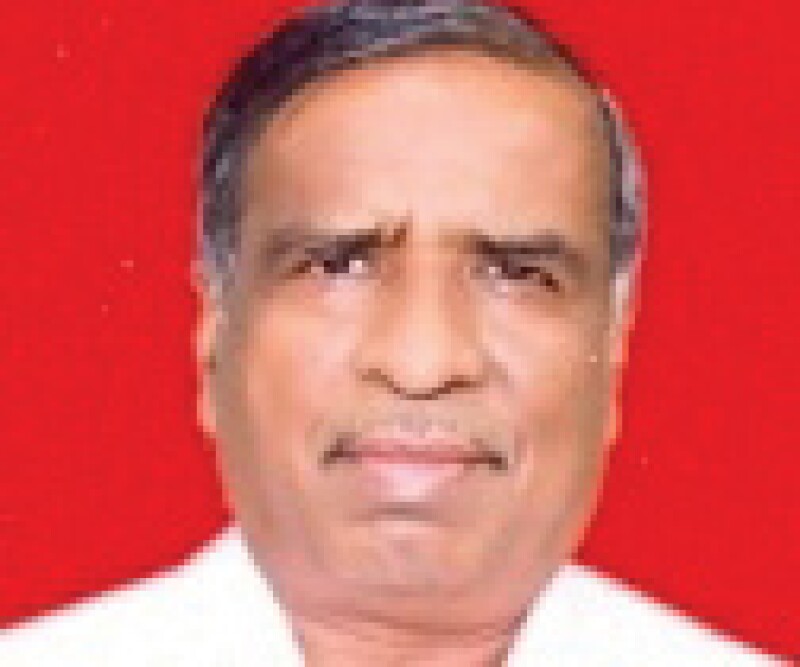
|
GE Veerabhadrappa was appointed as the President of the Indian Income Tax Appellate Tribunal (ITAT) last month. The ITAT has released countless rulings on the treatment of transfer pricing in India, with more than 100 rulings in transfer pricing this year alone. It stands as a major influence in the approach to the practice, with taxpayers all over the world using the numerous decisions as benchmarks for their own documentation and transfer pricing strategy.
Recent influential cases include:
Gemplus India Pvt Ltd vs ACIT (ITA No 352/Bang/2009), of October 21 2010, is a fine example of management fees under scrutiny, where the Bangalore Income Tax Appellate Tribunal ruled in favour of the commissioner of income. The case dealt with regional and global management fees. The tribunal held that an Indian associated enterprise (AE) must establish that payments are made in equal amount to the volume and quality of service and that such amounts are comparable to third-party arrangements.
The Delhi Tribunal in Abhishek Auto Industries Limited vs Deputy Commissioner of Income Tax (2010-TII-54-ITAT-DEL-TP), of November 12 2010, ruled that the tax authorities cannot reject a legally binding inter-company agreement, for payment of royalty or technical fees approved by regulatory agencies, simply because there is no commercial need for the arrangement.
The Delhi Tribunal ruling in the case of Cheil Communications (ITA No 712/Del/2010) is an initial ruling on pass-through costs. While the authorities are likely to appeal as it is the first of its kind, it may have a favourable impact on pharmaceutical R&D. Cheil Communications India, a subsidiary of South Korea's largest advertising agency, won its appeal at the ITAT over pass-through costs.
Serdia Pharmaceuticals (India) Pvt Ltd v ACIT (ITA No: 2469/Mum/06, 3032/Mum/07 and 2531/Mum/08), in Mumbai, held that the comparable uncontrolled price (CUP) method was the most appropriate when determining the arm's-length price of generic drugs. The ruling is based on the availability of comparables and whether the innovators of the drugs are allowed the monopoly on prices during the period when patents are in force, to recover their R&D costs. The court ruled that, when the patent expires on the pharmaceutical product, the higher pricing of the generic drugs, manufactured by competitors, cannot be justified on the basis of R&D costs.
| |
Evangelos VenizelosFinance minister, Greece |

|
Some people, the Gandhis and Martin Luther Kings of this world, are influential because people look to them for what to do in times of crisis. Others are equally influential because people look at them as a clear example of what not to do. Evangelos Venizelos, for his ineffective use of VAT policy, falls into the latter category.
After two VAT hikes to take the struggling country's rate to one of the highest in the EU, Greece is now facing high inflation and widespread fraud, pushing individuals and businesses into the black economy.
One adviser believes that Greek tax policy may have reached an intolerable pain threshold where people have stopped consuming.
The situation has become so bad that the government has been considering reversing the VAT rises.
Greek tax policy in recent times may be characterised by trial and error, but with all of its financial troubles, it may be more error than trial.
| |
World Trade OrganisationDispute Resolution Body |
Tax disputes dealt with the Dispute Resolution Body of the WTO have been infrequent over the years, but the DSB appears on this list not because of the impact it has had on tax so far, but the influence it could have in the future.
Elin Østebø Johansen of Norway is the chairperson of the DSB, which is made up of the 153 members of the WTO. The DSB
The results of one tax case were published this year. The Philippines brought a case to the WTO over the taxation of its cigarette exports to Thailand. A panel ruled in December 2010 that Thailand was in breach of its WTO obligations. Thailand lost its appeal in July 2011 this year.
More disputes are in the system. The EU launched an appeal in September this year about Philippines' taxation of distilled spirits.
However, a significant threat to any growing influence the DSB may have in tax matters is the time taken to decide cases. The Philippines first made its complaint about Thai cigarette taxes in February 2008 but had to wait for three and a half years for a resolution in the case. This is not long when compared to the time taken for litigation and dispute resolution in some jurisdictions, but it is still a considerable length of time for the two parties to wait for a decision.










